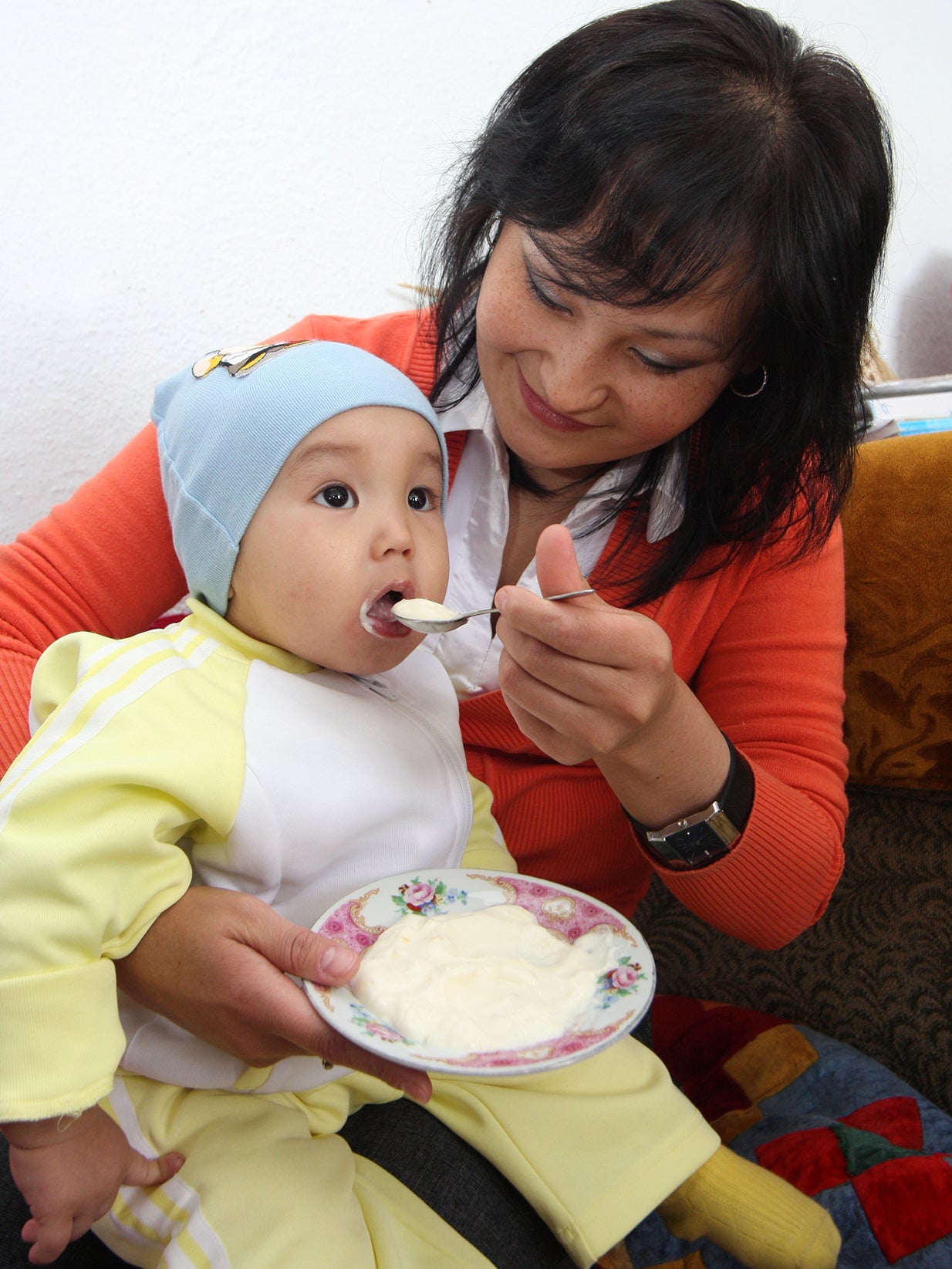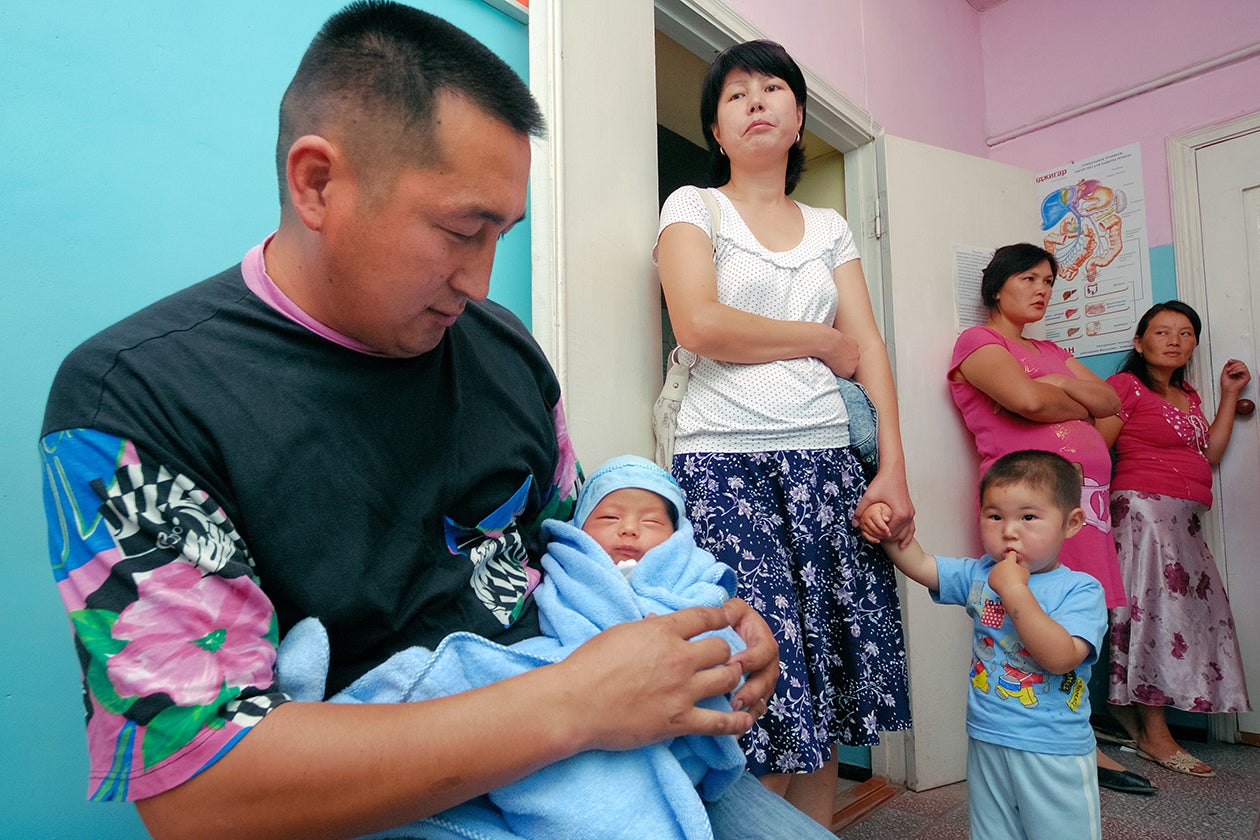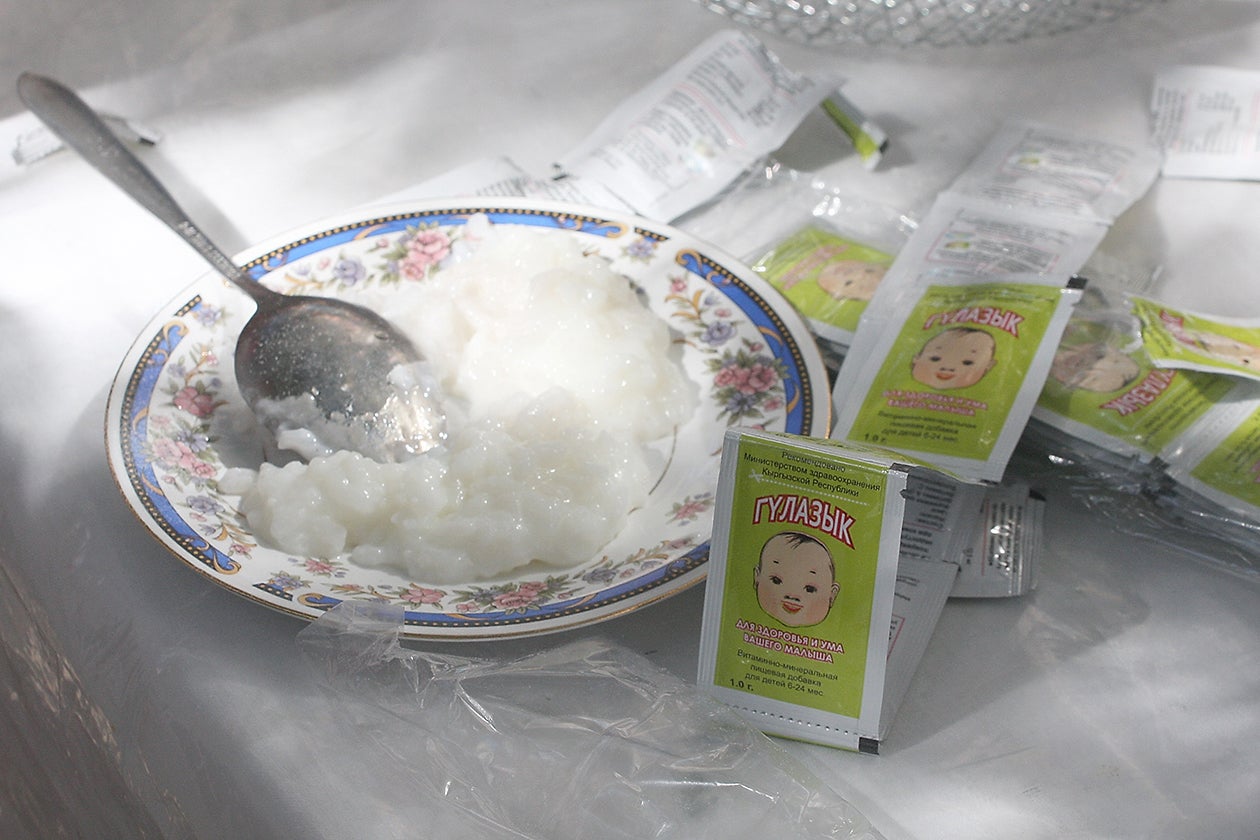Key Points
Complementary feeding:
Although on average Kyrgyz children’s growth has improved during the breastfeeding period (0-6 months), growth faltering is still severe during the complementary feeding period (6-24 months).
Infant formula:
With increased income came increased demand for infant formula, which slowed the acceleration of the exclusive breastfeeding rate.
Out-of-pocket healthcare spending:
Even as the government launched health reforms to make care accessible and affordable, Kyrgyz continued to pay significant amounts for health care out of pocket.
Fortification and supplementation:
In food fortification and supplementation programs, implementation struggles have limited their potential.
Complementary feeding
The linear growth curves and kernel density plots of Kyrgyz children suggest that there is something about the way they are fed in the period after they’re no longer exclusively breastfeeding but before they start sharing family meals that isn’t meeting their nutritional needs.
Challenges with young child feeding aren’t unique to the Kyrgyz Republic. According to the WHO, complementary foods must be “timely, adequate, safe, and appropriate” - that is, they must be given in addition to breast milk from six months onward, they must include all the necessary nutrients and be given in the right amounts and with the right frequency, they must be prepared hygienically, and they must be the right texture. In short, feeding young children properly requires not only access to a variety of specific food but also specialized knowledge on the part of caregivers. The Kyrgyz Republic has yet to launch a complementary feeding advocacy and education effort to match its successful campaign promoting breastfeeding.

Infant formula
In the mid-2000s, when remittances started coming in and families had access to more disposable income, imports of infant formula spiked from about 100,000 kg in 2002 to more than two million kg in 2012.
Import of infant foods

United Nations Comtrade Database (UN Comtrade). Accessed 2018
In response, the government passed a Law on the Protection of Breastfeeding of Children and the Regulation of the Marketing of Infant Food in 2008. Under the law, formula makers are prohibited from including images as part of their marketing strategy and must state the benefits of breastfeeding, the expiry date, and their name on the label. In 2009, the Kyrgyz Republic also added an 11th step to the Baby Friendly Hospital Initiative’s 10 Steps to Successful Breastfeeding aimed at preventing the use of breast milk substitutes.
Out-of-pocket healthcare spending
In 1994, before the Kyrgyz Republic launched the Manas program, 70 percent of outpatients and 85 percent of inpatients were making under-the-table payments to health workers to receive treatment, even though health care was nominally free.
Under Manas, out of pocket payments were reduced but not by enough, in large part because salaries for providers were very low and hospital employees demanded extra money for services. Private spending still accounted for 51 percent of total health spending in 2001. Despite efforts to address this problem through Manas Taalimi and a further successor, Den Sooluk, the problem persists to this day.

Fortification and supplementation
In 2001, the government passed a law mandating the iodization of domestically manufactured salt and prohibiting the importation of non-iodized salt. Between 1995 and 2005, the percentage of Kyrgyz consuming iodized salt increased from 27 to 76 percent. Despite this progress, the iodine levels in the salt haven’t necessarily been adequate. Less than 40 percent of the salt tested in a 2007 contained at least 15 mg of iodine per kg of salt, against a minimum compulsory range of 25-55 mg. “The main barrier is salt producers,” said one representative of a donor agency. “They cannot stand the norm; they do not buy potassium iodate. If they buy, then they do not have equipment that would evenly iodize salt.”
In 2009, the government passed a law mandating that baking flour be fortified with Vitamins B1, B2, B3, folic acid, iron, and zinc. This law has thus far been ineffective, because it applies only to certain high grades of flour. The assumption was that the lower grades, being less processed, retained more of their nutritional value. As a result of the regulations, the higher grades became more expensive, and sales of low-grade, unfortified flour have spiked. Over 240,000 tons of flour were produced in the Kyrgyz Republic in the first half of 2015, and only 18 percent of it was fortified.

